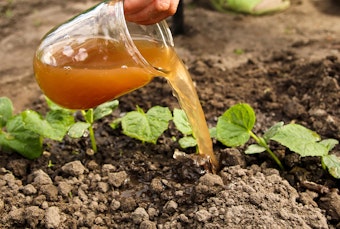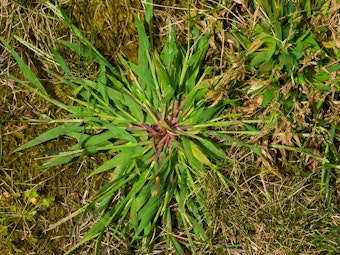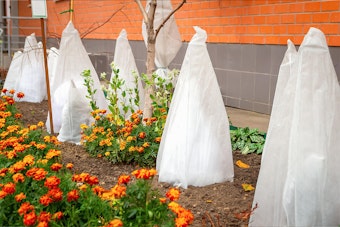 Be Inspired Blog - Arizona
Be Inspired Blog - Arizona

Winter Garden Cleanup & Prep
Discover essential winter garden maintenance tips for the greater Phoenix, Arizona metro area. Learn the best practices for early winter gardening, including pruning techniques, effective weed control, the benefits of mulching and fertilizing, and irrigation system care. Get insights on planting seasonal crops, garden planning strategies, and tool maintenance. Embrace winter composting and frost protection for sensitive plants.
In the Valley of the Sun, where winters are relatively mild, early winter is an excellent time for various simple garden cleanup and maintenance tasks.
Here Are Some Key Winter Gardening Activities We Recommend:
-
Pruning: Winter is a good time to prune many plants, as they are often dormant during this period. This includes trimming back roses, deciduous fruit trees, perennials, shaping bushes, and removing any dead or diseased branches from trees. However, be cautious with frost-sensitive plants and delay pruning until the risk of frost has passed.
 Fertilizing: Given the Valley's mild winter climate, late-February is the perfect time to give your garden a nutrient boost by fertilizing. Applying a balanced, slow-release fertilizer replenishes essential nutrients depleted during the hot summer months and enhances soil microbial activity, laying a strong foundation for spring growth. Whether you’re tending to your lawn—helping it resist challenges like crabgrass—or nurturing garden beds and cool-weather crops, a timely dose of fertilizer supports robust root development and overall plant health. Integrating this step with your winter cleanup routine not only revitalizes stressed plants but also sets the stage for a thriving garden as temperatures begin to rise.
Fertilizing: Given the Valley's mild winter climate, late-February is the perfect time to give your garden a nutrient boost by fertilizing. Applying a balanced, slow-release fertilizer replenishes essential nutrients depleted during the hot summer months and enhances soil microbial activity, laying a strong foundation for spring growth. Whether you’re tending to your lawn—helping it resist challenges like crabgrass—or nurturing garden beds and cool-weather crops, a timely dose of fertilizer supports robust root development and overall plant health. Integrating this step with your winter cleanup routine not only revitalizes stressed plants but also sets the stage for a thriving garden as temperatures begin to rise.-
 Weed Control: Take advantage of the cooler weather to control weeds. Since growth is slower in winter, it's easier to manage them. Hand-pulling or using a hoe can be effective, and this is also a good time to apply pre-emergent herbicides to prevent spring weeds.
Weed Control: Take advantage of the cooler weather to control weeds. Since growth is slower in winter, it's easier to manage them. Hand-pulling or using a hoe can be effective, and this is also a good time to apply pre-emergent herbicides to prevent spring weeds. -
Mulching: Apply a fresh layer of mulch around your plants. Mulch helps retain soil moisture, regulate soil temperature, and suppress weed growth. It also adds organic matter to the soil as it decomposes.
-
 Inspecting and Repairing Irrigation Systems: Check your irrigation system for any leaks or broken parts. Winter is a good time to make repairs or adjustments since the plants require less water and you're less likely to disturb them.
Inspecting and Repairing Irrigation Systems: Check your irrigation system for any leaks or broken parts. Winter is a good time to make repairs or adjustments since the plants require less water and you're less likely to disturb them. -
Planting: Early winter is a great time to plant certain vegetables, flowers, and trees that thrive in cooler weather. Consider planting leafy greens, root vegetables, and some flower varieties that can handle the mild winter.
-
 Garden Planning: Use this quieter time to plan your garden for the coming year. Think about crop rotation, new plants you want to try, and any changes to the layout or design of your garden. Be sure to consider sun exposure in your garden landscape.
Garden Planning: Use this quieter time to plan your garden for the coming year. Think about crop rotation, new plants you want to try, and any changes to the layout or design of your garden. Be sure to consider sun exposure in your garden landscape. -
Cleaning Garden Tools and Equipment: Clean, sharpen, and repair your gardening tools. Well-maintained tools make garden work more efficient and enjoyable.
-
Composting: Turn your compost pile and add any fallen leaves or plant debris. Composting during winter prepares rich, nutritious soil for spring planting.
-
 Covering Sensitive Plants: Keep an eye on the weather forecast for frost warnings. Cover frost-sensitive plants to protect them from cold nights.
Covering Sensitive Plants: Keep an eye on the weather forecast for frost warnings. Cover frost-sensitive plants to protect them from cold nights. -
Lawn Care: If you have a lawn, early winter is a good time to aerate and, if necessary, apply a winter fertilizer to keep the grass healthy.
Remember, the specific needs of your garden might vary based on the plants you have and the microclimate in your area. These general guidelines should be adapted to fit the unique conditions of your garden. Have any questions? Stop by your local SummerWinds Nursery to speak with one of our Trusted Garden Advisors!

